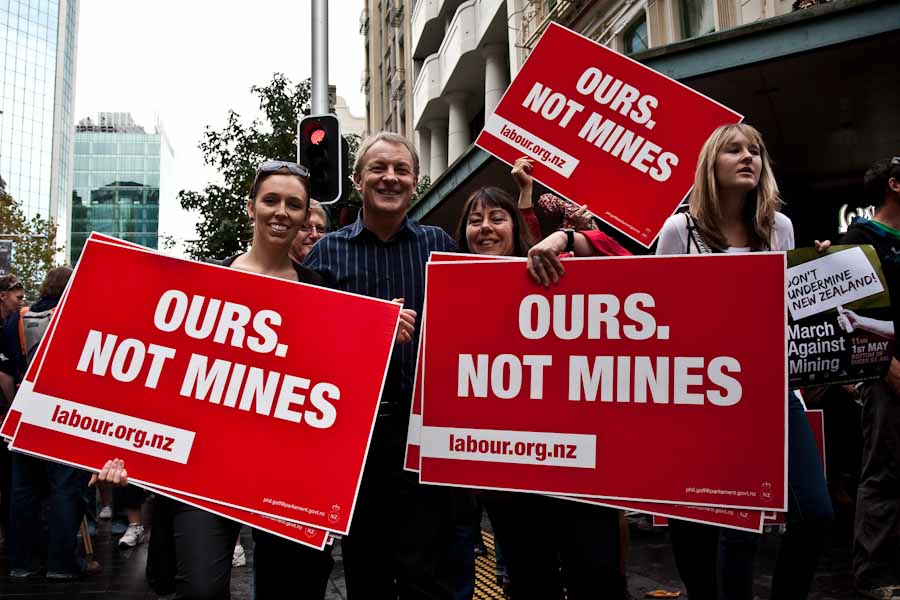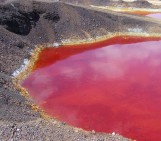This guest blog post is brought to you by Nick Arndt, Professor at ISTerre and convenor of the the Great Debate at last year’s General Assembly, Metals in our backyard: to mine or not to mine. During the Great Debate the issue of whether the environment impact of mining outweighs the benefits vs. domestic metal production was questioned. With Europe currently importing between 60-100% of the metals that are essential for modern society, this posts explores how realistic it is to advocate for no mining in our own backyards.
Two years ago, in response to massive demonstrations on the streets of Bucharest, the Romania government reversed its decision to allow mining of the Rosia Montana gold deposit. Fierce discussion currently surrounds the Pebble deposit in Alaska, the fifth largest unmined copper deposit. Last summer, protesters derailed mineral exploration in the Rouez region, the first exploration authorized in France for 20 years. In all cases, the activists argued that the environmental risks were so great that mining was unacceptable. The slogan of the French protesters was:
“no mines!!! neither in Rouez, nor anywhere”.
When the Rouez activists were asked where the metals needed for modern society should come from, many answered that improved recycling and substitution would provide the solution. If only this were true! Recycling will indeed provide an increasing proportion of our metals in the future, but for decades to come, new supplies of metals and other mineral products will be required. The vast infrastructure of wind turbines and solar panels needed for a low-carbon society will consume huge amounts of mineral products, not only the well-publicized rare earths and other critical elements, but also enormous quantities of steel, aluminium, concrete and sand. All these materials will be locked up for the 20-30 year lifetime of the structures and will not be available for recycling.
To organize their demonstrations, the Rouez and Bucharest activists used cell phones containing numerous rare metals, including cobalt-tantalum that probably came from war-torn central Africa. Some of the titanium might have come from a mine in Norway, and some copper from Poland, but the other metals were imported from outside Europe
The main reason why oil prices have plunged in the past three months is the recent availability of large sources of gas and oil from shale in the USA. While the low prices will have a negative medium-term impact on movements to wean society from fossil fuels, in the short term they may provide a sorely needed boost to struggling European economies. France is in a peculiar position – it has been at the forefront of the movement to ban fracking and has prohibited even the exploration for non-conventional hydrocarbons on its territories, but its feeble economy will benefit from the low energy costs brought about by the availability of American shale-derived oil and gas.
Other Rouez activists recognized that new sources of metals were necessary, but they were adamant that the mining should be done in a manner that caused minimal environmental damage … and preferably far, far away from where they lived. While some metals can be imported to Europe from countries with stable and competent governments like Canada and Australia, most come from Africa, Asia and South America where governments are commonly too weak, too corrupt, or too poor to ensure that mining is done properly. The concerned citizens of Europe and other rich countries prefer that people in other regions put up with the nuisance associated with mining, and if this means that mining is done in places where the operation cannot be done properly, so be it.
The locavore movement argues that we should consume only what is produced within a short distance from where we live. The principle is normally applied to food, and is based on sound principles. Local consumption provides employment to local people and reduces ‘food miles’ – the distance from producers to consumers. But aren’t these ideas equally valid for metals? Is it reasonable and logical to shun green beans from Kenya while consuming copper from the Congo? The Aitik mine illustrates that metals can be produced correctly and efficiently in Europe. This mine, which is located in the far north of Sweden and respects stringent Swedish social and environmental norms, efficiently exploits ore containing only 0.27% Cu, far below the global average.
Rather than adopting the dubious stance that others should bear the burden of supplying the metals needed for European society, is it not more principled to argue that mining should done correctly, and in our own backyard?
By Nick Arndt, Professor at ISTerre & current GMPV Division President





Pingback: GeoLog | Earth Science Week 2020: Earth Materials in Our Lives - an A-Z! - GeoLog
Andrea Cimatoribus
Interesting thoughts, but I would be careful with sentences as “The main reason why oil prices have plunged in the past three months is the recent availability of large sources of gas and oil from shale in the USA.” and “the low prices …in the short term they may provide a sorely needed boost to struggling European economies.”
A cursory look to a few newspapers will reveal that plunging oil prices are mainly the result of a political choice of Saudi Arabia, which is putting the shale gas industry under great stress. And considering that deflation has reached even Germany, decreasing oil prices may not really give the “boost” hoped for by the author…